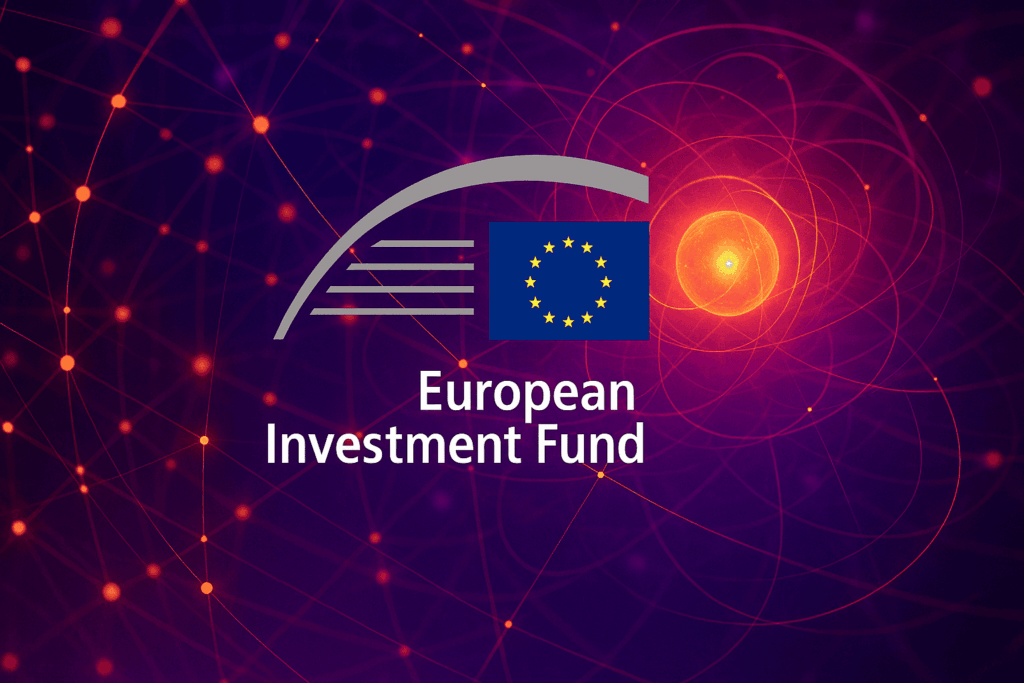By John Levy
CEO, Co-Founder and Chair, SEEQC
In 2023, the quantum ecosystem experienced significant strides in research and development, with companies big and small contributing to the industry’s overarching goals.
The culmination of these advances proves that collaboration and competition is the best approach to bring quantum computing to life. For a technology with as much potential to alter computing as we know it, we must collaborate within, and outside of, our industry to ensure its success.

The achievements in 2023 are strong evidence of the positive trajectory of the industry, with numerous innovations from many different quantum computing companies, global expansion of the technology, and cross-sector collaborations vital to the development and implementation of quantum computing.
Breakthroughs
Error correction, a key focus for quantum computing, is essential for scalability; the most successful quantum computers will be defined by this metric, among many others. In February, Google published promising results, finding that a 17-qubit system could successfully recover from one error, and a 49-qubit system could recover from two simultaneous errors. This was a major milestone in Google’s quantum roadmap as it continues to be a key contributor to the quantum landscape. And in November, Amazon introduced a new chip for quantum computing which has suppressed errors by 100x. According to Amazon, combining passive and active error correction approaches could theoretically achieve quantum error correction six times more efficiently than standard methods. IBM Scientists discovered a new error correction scheme that work with 10x fewer qubits, a discovery that has enabled IBM to clarifying its roadmap for the next decade.
This year, our long established partner, Riverlane, introduced an error correction decoder chip that shows promise for tackling the complexity of decoding large arrays of error corrected qubits. This work however also highlights the latency and bandwidth bottlenecks associated with decoding error correction architectures at scale. Multi-stage decoder strategies like those by Microsoft, Riverlane and our scientific consultant, Simon Trebst, prove that pre-decoding is key to eliminating these latency and bandwidth bottlenecks while also proving that a chip-based solution integrated with qubits at the chip level is critical to unlocking these benefits. In 2024 we look forward to defining the world’s first integrated chip-based decoder architecture to prove our chips are the solution to scaling all quantum computers.
Quantum computers must also be scalable and energy efficient to make a meaningful impact. In March, SEEQC debuted its first quantum reference system, SEEQC System Red. This milestone was celebrated in July with a collaboration with HQS Quantum Simulations, in which SEEQC Red successfully ran HQS’s algorithm for the first time on real hardware. Collaborations like this and others define (and prove) the commercial applications that this technology can provide.
Later in the year, SEEQC introduced its first fully digital chipset for full-stack quantum computers, capable of control and multiplexing. SEEQC takes a different approach to scalability, using SFQ chip methodology as opposed to cryo-CMOS, the latter of which has been used to scale modern computing chips. SEEQC’s digital single flux quantum (SFQ) chips will be capable of running all core qubit controller functions of a quantum computer at the same cryogenic temperature as the qubits, a significant development for energy efficiency in quantum.
As quantum chips continue to grow in power and capability, legacy chip providers are also significantly expanding the quantum ecosystem such as the debut of Intel’s spin silicon 12-qubit chip in June. The experience, expertise and resources of these legacy companies allow for smaller companies to dynamically improve upon their findings and advance their technology alongside these industry leaders.
It is impossible to discuss scalability and energy efficiency without addressing the need for larger qubit arrays which hold the potential for larger systems. Atom Computing was the first company to reach 1,000 qubits in a quantum computer, followed up by IBM’s 1,000 qubit system, unveiled in December. These are grand milestones in showcasing the power that these quantum computers can hold, but there is still much to do surrounding error correction, scalability and coherence to make these systems commercially applicable.
Quantum continues to go global
Quantum expanded globally this year, with some pivotal firsts in validating the technology occurring across the globe.
IQM was selected to deliver the first processing units for quantum computers to Spain. Like many governments globally, Spain is committed to being a part of the quantum landscape, and its presence strengthens Europe’s regional quantum industry.
Similarly, Japan’s first gate-based quantum computer from the Riken Research Institute went live, solidifying the APAC region’s role in the development of applicable and useful quantum computing. Japan’s first gate-based quantum computer is a significant milestone for the country, the region and the industry as a whole.
One month later, SEEQC built Italy’s first full-stack quantum computer at its facility in Naples. The Italian government has signaled that quantum computing is an immediate priority, and will invest significant resources over the next few years in hopes of establishing itself as a leader in this field.
For quantum computing to make the global impact that it has the ability to do, nations must collaborate for the growth and betterment of the technology. These achievements from 2023 paint a picture of a flourishing global industry, and 2024 will bring more important developments for international quantum computing.
Collaboration opens the door for quantum’s future
One of the most impactful ways for quantum development is cross-industry partnerships and collaborations, combining the resources and expertise from leaders in their respective fields with a conjoined goal. These collaborations are taking place across the world making it impossible to list all of them, which speaks volumes to the global demand for quantum computing in a number of industries.
The leading industry ripe for application is the medical and pharmaceutical field. IBM and Moderna announced a collaboration to research how quantum computing and generative AI can positively impact mRNA science; IBM will give Moderna access to quantum computing systems to research the capabilities of quantum computing in pharmaceuticals.
Leveraging expertise from today’s classical computing leaders is a significant resource for quantum computing. NVIDIA has invested considerably in their position in quantum computing’s landscape, announcing a number of quantum-focused collaborations. One of these projects with SEEQC pursues the world’s first CPU, GPU and QPU chip integration to create a singular high-powered system with infrastructure for quantum AI and other applications.
It’s imperative that quantum computing embraces the role of academia in its growth as an industry. Harvard, in collaboration with QuEra, created the first programmable, logical quantum processor, capable of encoding up to 48 logical qubits. This processor has also executed hundreds of logical gate operations, showing significant progress for the performance of neutral atom quantum computing systems.
It has been a year of promising advancements and critical milestones in quantum computing. It will take an ecosystem of thoughtful and innovative companies, not one “winner”, to propel quantum computing into the realm of useful technologies, and that is reflected in 2023’s accomplishments.
While it’s important to reflect, it’s much more impactful to look ahead: 2024 holds great promise for our industry. Collaborations will continue to thrive and teach us all about the capabilities of quantum technology. Technology will continue to progress and make significant strides that were once unimaginable. And as CHIPS and Science Act funds begin to directly impact the quantum computing industry, the best is yet to come for my colleagues in the quantum computing industry.
For more market insights, check out our latest quantum computing news here.














